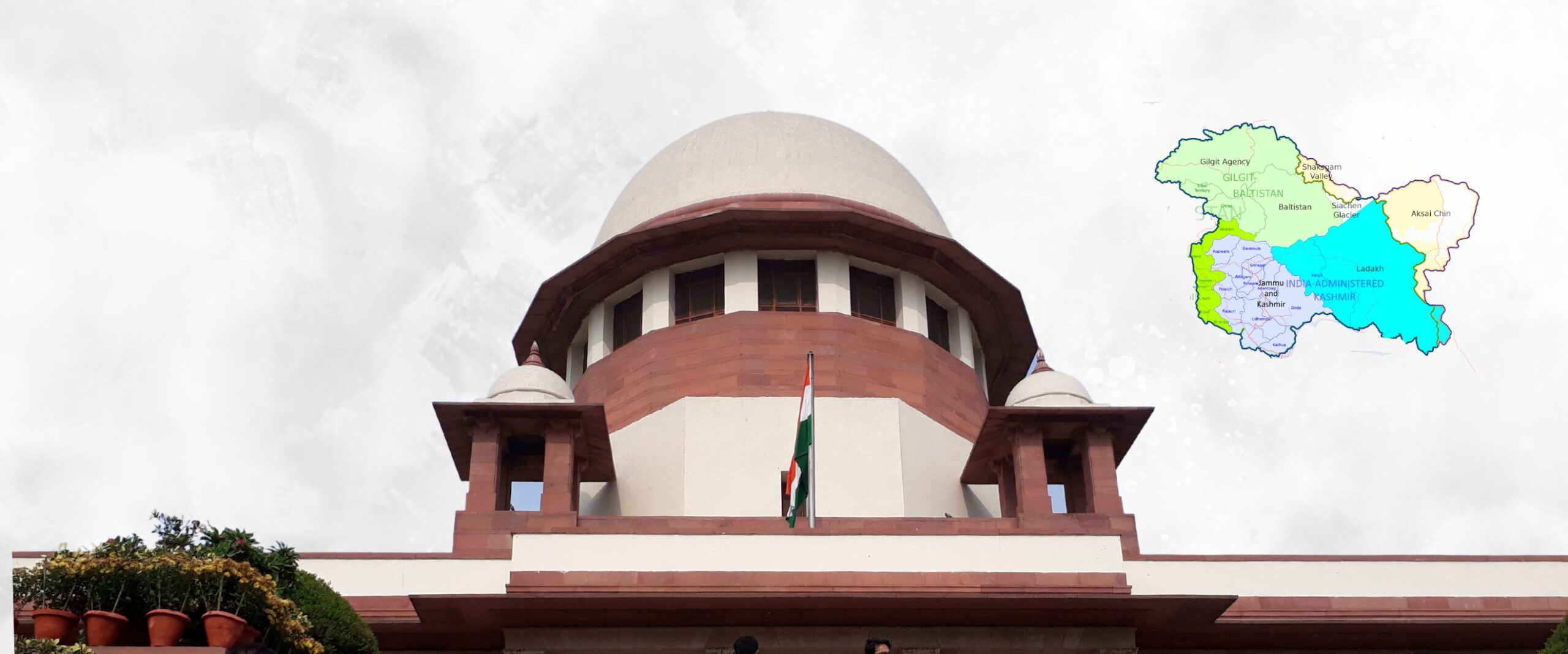
10 JAMMU AND KASHMIR - OLD PROVISION
SPECIAL PROVISIONS (PART XXI)
In Part XXI are given 'Temporary, Transitional and special provisions'. Article 370 deals with the State of Jammu & Kashmir which forms a part of the 'territory of India' as defined in Art.1 of the Constitution, being the fifteenth State included in the First Schedule of the Constitution, as it stands amended.
Nevertheless, the special constitutional position which Jammu & Kashmir enjoyed under the original Constitution has been maintained, so that all the provisions of the Constitution have been maintained, so that all the provisions of the Constitution of India relating to the States in the First Schedule are not applicable to Jammu & Kashmir.
Historical Aspect :- When the British left India, the State was ruled by a hereditary Maharaja. On the 26th of October, 1947, when the State was attacked by Azad Kashmir Forces with the support of Pakistan, the Maharaja (Sir Hari Singh) was obliged to seek the help of India, after executing an Instrument of Accession similar to that executed by the Rulers of other Indian States.
By the Accession the Domination of India acquired jurisdiction over the State with respect to the subjects of Defense, External Affairs and Communications. But though the State was included as a Part B State all the provisions of the Constitution applicable to Part B States were not extended to Jammu & Kashmir. This peculiar position was due to the fact that having regard to the circumstances in which the State acceded to India, the Government of India had declared that it was the people of the State of Jammu & Kashmir, acting through their constituent Assembly, who were to finally determine the Constitution of the State and the jurisdiction of the Union of India.
Special features :- The salient features of the constitutional position of J & K in relation to the Union as modified from time to time as given below.
Jurisdiction of Parliament :- Parliamentary jurisdiction is confined to the matters enumerated in the Union List, and the Concurrent List, subject to certain modifications, while it shall have no jurisdiction as regards most of the matters enumerated in the Concurrent List. In the case of J & K, the residuary power shall belong to the Legislature of that State, accepting certain matters, specified in 1969, for which Parliament shall have exclusive power e.g., prevention of activities relating to cession of secession, or disrupting the sovereignty or integrity of India. The power to legislate with respect to preventive detention in J & K belongs to the Legislature of the State instead of Parliament, so that no law of preventive detention made by Parliament will extend to that State. By the Constitution (Application to J & K) Order, 1986, however, Art. 249 has been extended to the State of J & K, so that it would now be competent to extend the jurisdiction of Parliament to that State in the national interest (e.g., for the protection of the borders of the State from aggression from Pakistan or China), by passing a resolution in the Council of States.
Autonomy of the State in certain matters :- The plenary power of the Indian Parliament is also curbed in certain other matters, with respect to J & K, e.g., (i) alteration of the name or territories of the State (Art. 3); (ii) international treaty or agreement affecting the disposition of any part of the territory of the State (Art. 253). In these matters, the consent of the State Legislature is required.
Thus no decision affecting the disposition of the State can be made by the Government of India, without the consent of the Government of the State.
The Union shall have no power to make a Proclamation of Financial Emergency with respect to the State of J&K under Art. 360. Furthermore, Emergency (Art. 352) can be applicable to J & K only in the event of war or external aggression. The concurrence of the State Legislature is required for an emergency on 'armed revolt'.
Fundamental Rights and the Directive Principles :- The provisions of Part IV of the Constitution of India relating to the Directive Principles of State Policy do not apply to the State of Jammu & Kashmir.
The provisions of Part 19 are subject to special restrictions Articles 19 (1) (f) and 31 (2) have not been omitted, so that the fundamental right to property is still guaranteed in this State.
Separate Constitution for the State :- The State of J & K has its own Constitution (made by a separate Constituent Assembly and promulgated in 1957).
Procedure for Amendment of State Constitution :- While an act of Parliament is required for the amendment of any of the provisions of the Constitution of India, the provisions of the State Constitution of J & K (excepting those relating to the relationship of the State with the Union of India) may be amended by an Act of the Legislative Assembly of the State, passed by majority of not less than two-thirds of its membership; but if such amendment seeks to affect the Governor or the Election Commission, it shall have no effect unless the law is reserved for the consideration of the President and receives his assent.
Alteration of the Area/Boundary :- No alteration of the area or boundaries of J & K can be made by Parliament without the consent of the Legislature of the State of Jammu & Kashmir.
